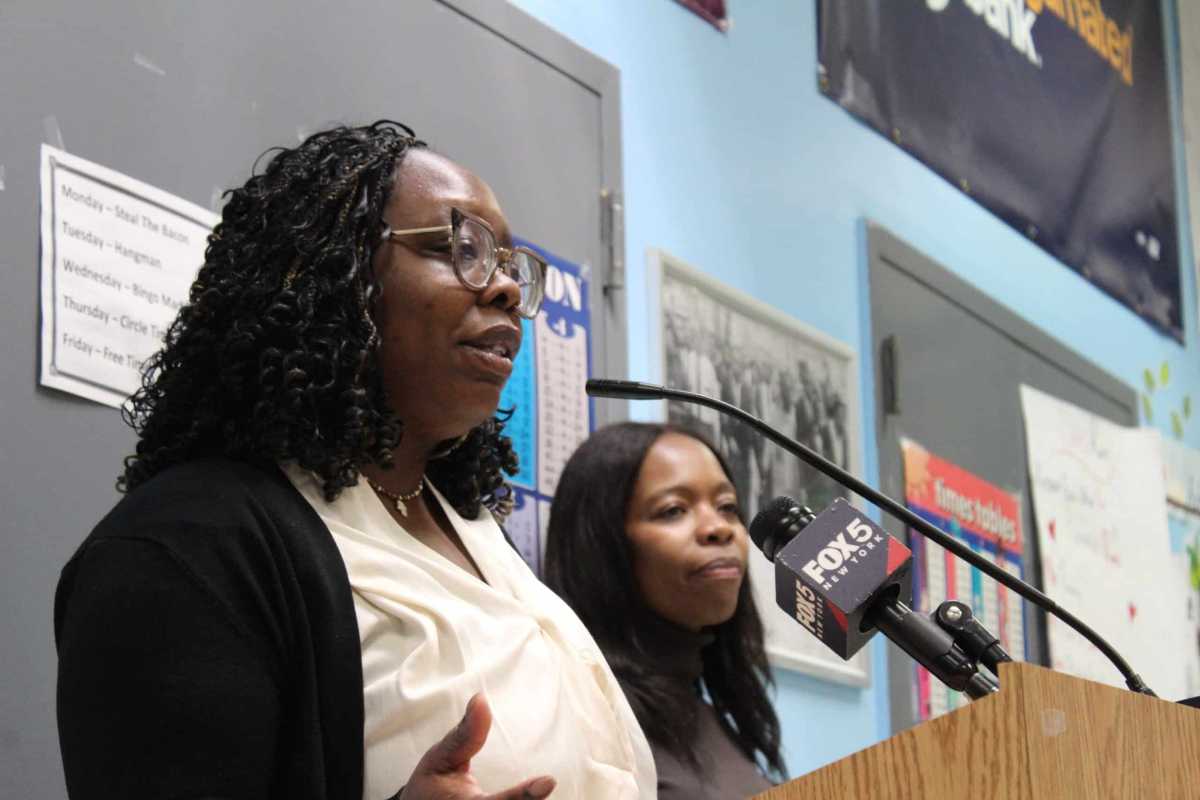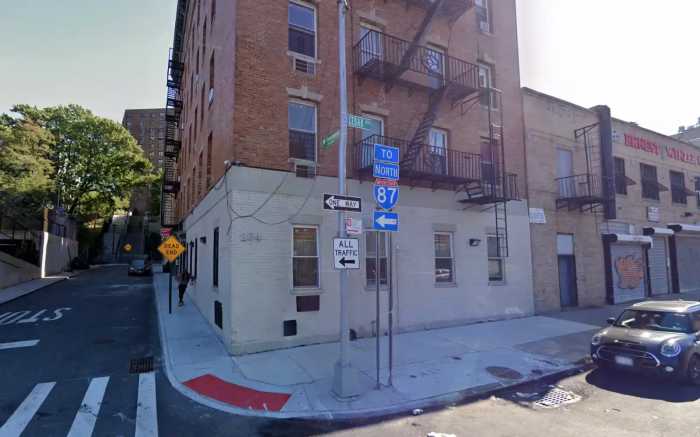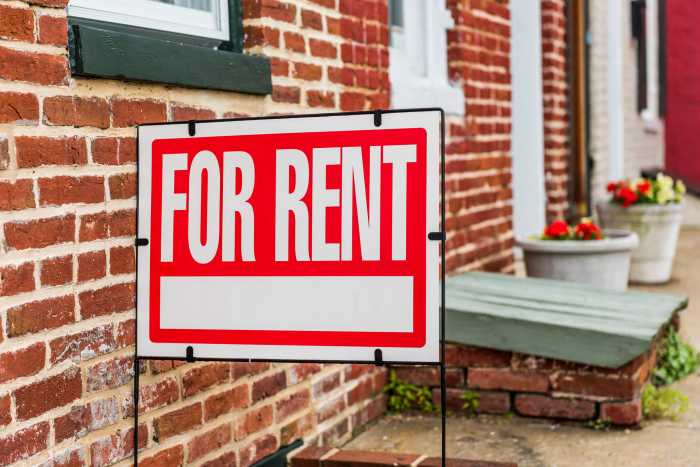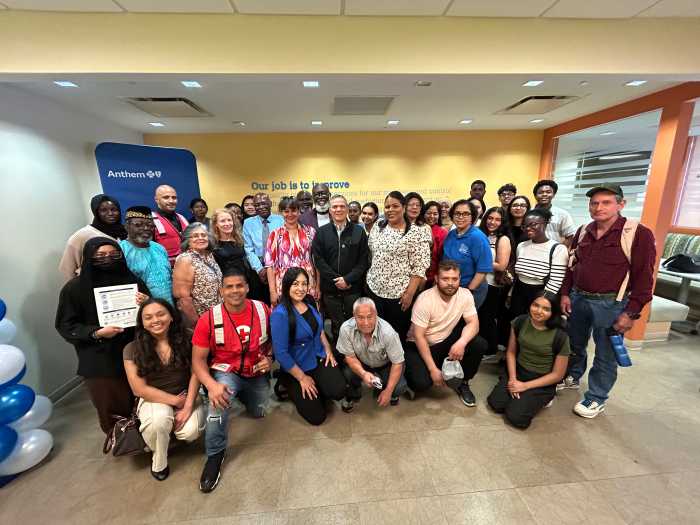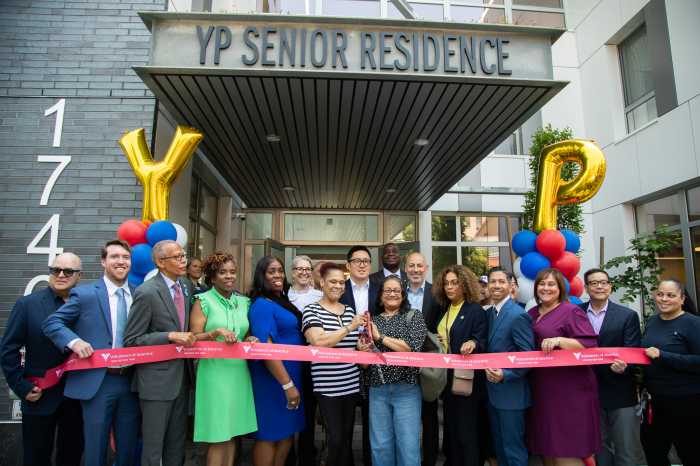Community organizations and activists rallied with local pols in the Bronx on Tuesday night to denounce proposed budget cuts for Department of Education (DOE) schools.
The March 5 town hall at the Davidson Community Center in Morris Heights drew a crowd of around 100 people representing various school districts and educational organizations. The call to action: imploring the New York City Council to save educational programs and resources on the chopping block.
“What we are dealing with are lower income Black and brown families who are busy just trying to survive every day,” said Tom Sheppard, the Bronx Community Education Council (CEC) president who was elected to the citywide Panel for Educational Policy (PEP). “And when you have people who are just trying to survive every day get really excited about what education looks like for their children, they’re going to show up.”
The urgency comes after Mayor Eric Adams proposed a new citywide budget last November, which THE CITY reported would cut more than $570 million from the DOE over multiple years, as well as up to $18 million from community schools this year and next. The proposed budget, which Adams said was prompted by the financial burden posed by the influx of migrants coming to New York City, was also set to cut other citywide services — including funding for sanitation, libraries and the NYPD.
In January, however, Adams reversed some of his proposed cuts as DOE employees and the United Federation of Teachers union — which sued the mayoral administration in December over the budget — as well as parents and students, piled the pressure on. But even with the reversal, the New York Times reported that the DOE is still slated to lose more than $500 million.
At Tuesday night’s town hall in Morris Heights, Sheppard told the Bronx Times he became active in education after a job interview with an “exclusive private school in the Bronx” — when after the meeting he realized the stark differences between his children’s educational resources and the one he had just toured. He has six kids, including one son currently in middle school and two daughters in high school.
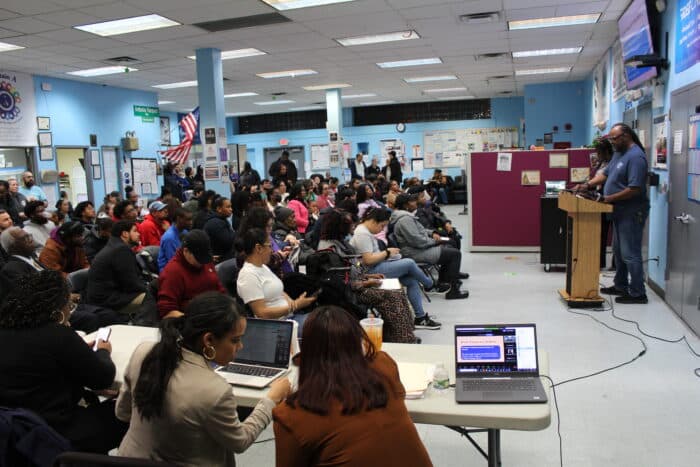
“On the drive from this school to my kids’ school, (I was) really upset because I saw the difference between what $50,000 or $60,000 a year can buy you in terms of a private school education — and then the fact that my kids in public school in District 11 didn’t have any of those things,” Sheppard said. “What I committed to doing, like that day, was to really do something about it.”
Other local organizers, parents and current students took turns on the microphone pleading that the New York City Council find a way to keep school services that students are at risk of losing. Many of them spoke about the hardships students face in underserved neighborhoods, particularly those in low income areas of the Bronx, linking educational programs to nutritional wellness, physical safety and advanced opportunities.
“I’ve been all over the city and what I can tell you is in places like the Bronx especially, food insecurity is real and it’s real to a degree here that it does not exist in other parts of the city,” Sheppard offered as an example. “And when we talk about a $60 million cut to food and nutritional services, that’s going to impact our Bronx families.”
The Bronx’s District 14 and District 16 council members and members of the Committee on Education — Pierina Sanchez and Althea Stevens — were in attendance, as well as Brooklyn’s District 40 representative and chair of the Committee on Education, Rita Joseph.
Stevens encouraged the crowd to show up in numbers to upcoming town halls and council committee meetings regarding the education budget.
“Specifically in the Bronx, it looks a lot different than it does over in the rest of the city because we have smaller school settings … so when we have cuts these cuts are a lot deeper than they are in some other communities,” she said. “Too often in the Bronx we are on the sidelines.”
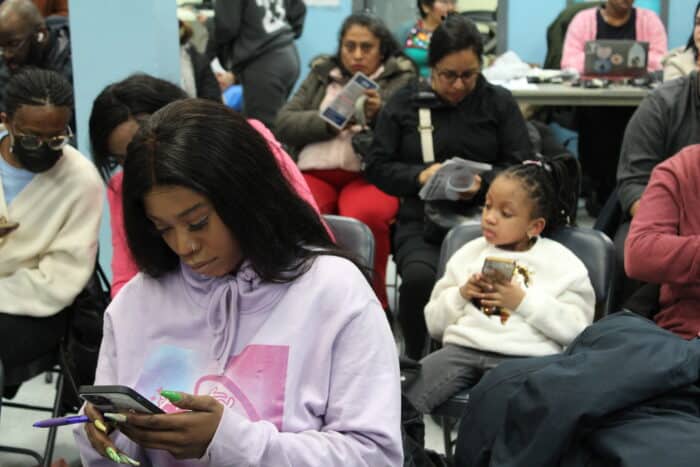
According to state data, Bronx County has the highest proportion of economically disadvantaged students in public schools at 88% — the majority of which are Hispanic (63%) and Black (26%). That’s compared to the proportion of economically disadvantaged students in Brooklyn (77%), Queens (74%), Manhattan (68%), and Staten Island (63%).
The town hall participants focused on various major areas they say would have catastrophic impacts for students if cut: 3-K services, special education services, social work and psychologist staffing, community school programming, school nurse staffing, restorative justice initiatives, homeless shelter coordinator staffing, translation and interpretation services, learning disability help, school lunches, and more.
A student, peer advisor and assistant director at Bronx Haven High School in the South Bronx told the council members that students need programming to stay off the streets, out of legal trouble, and sometimes even out of dysfunctional homes.
Representatives from the Kingsbridge Heights Community Center attributed its programming to their success in graduating from high school, landing internships, being the first in their families to attend college.
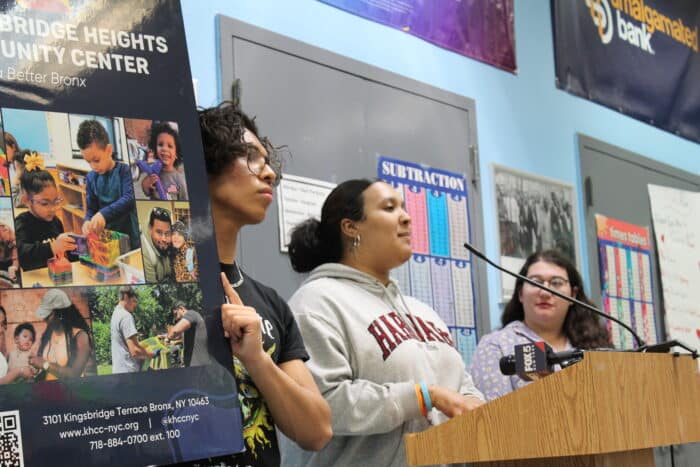
Parents of DOE students emphasized the importance of advocating on behalf of their kids and their kids’ classmates who don’t have the means or capabilities of speaking out for themselves.
Erika Gonzalez, a mom of four and the Individualized Education Plan (IEP) representative for Bronx School District 10, said that all students — whether they’re IEP or not — should go to well-resourced schools. She told the Bronx Times she has one child heading to high school, one off to middle school, a fourth grader, and a second grader. They live in Kingsbridge Heights.
“I believe that all children, they need to be served,” she said. “And they also need to work to their full potential.”
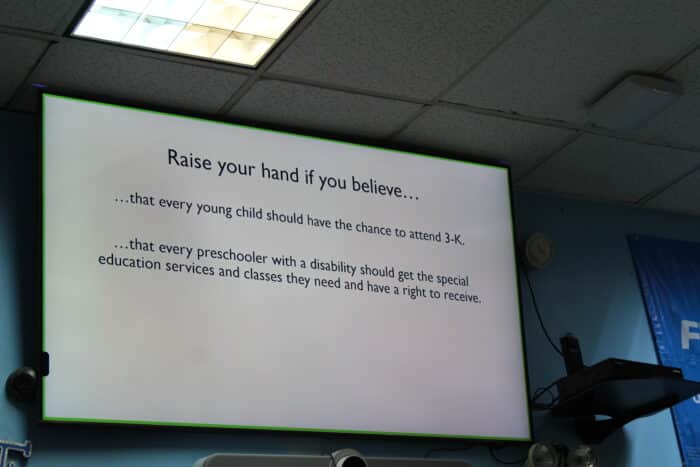
Sheppard told the Bronx Times that he believes one of the fundamental issues surrounding public education in New York City, however, is the context in which it exists — under mayoral control.
This system of school governance began with former Mayor Michael Bloomberg in 2002, who appointed the DOE chancellor and the majority of the PEP. The state legislature votes on whether or not to renew the mayor’s authority, which they did in 2022 after Adams won the city’s high seat in 2021.
Sheppard said mayoral control stifles parent and student authority over public school education — they serve as advisers and symbolic voices for policy, but don’t have any actual decision-making power.
“What I’ve been fighting for with so many other parents is to kind of change this paradigm around engagement to one where parents have more control over what education looks like for their children,” he said. “At the end of the day, in order for this to work, authority has to be given to parents and communities to have a say in how resources are spent in providing education for their students.”
The next New York City Council Committee on Education budget hearing at City Hall is scheduled for March 18 at 10 a.m., with public testimony slated to start at 2:30 p.m. For more information on testifying in person, remotely or by writing to the council, visit council.nyc.gov/testify.
Reach Camille Botello at cbotello@schnepsmedia.com. For more coverage, follow us on Twitter, Facebook and Instagram @bronxtimes

